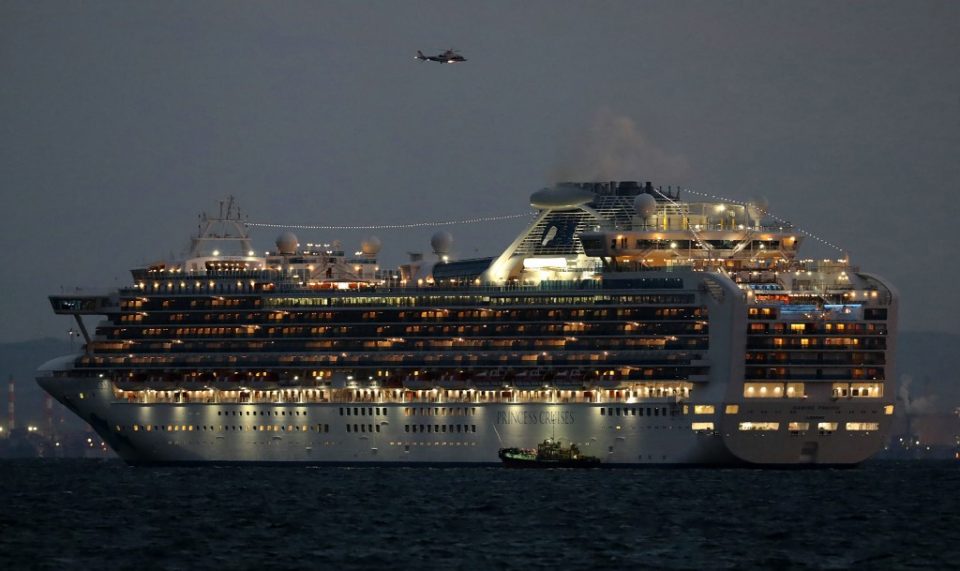
TOKYO, Japan (AFP) — At least 10 people on a cruise ship quarantined off the coast of Japan have tested positive for the new coronavirus, Japan’s health minister said on Wednesday.
Japan quarantined the vessel carrying 3,711 people and was testing those onboard for the virus after a former passenger was diagnosed with the illness after disembarking in Hong Kong.
Health Minister Katsunobu Kato told reporters that specimens were collected from more than 200 people on board the Diamond Princess.
So far, the results of 31 tests are available, with 10 people on board confirmed to have the virus, he said.
“From around 7:30 am (2230 GMT Tuesday), we had them (the 10 who tested positive) get off the vessel, and with cooperation with the coastguard we are sending them to medical organizations,” he said.
The rest of the passengers and crew on board the ship will be required to stay on the vessel for 14 days, Kato said, citing the medical consensus that the new virus has an incubation period of up to two weeks.
More than 20 countries have confirmed cases of the virus, which has killed nearly 500 people and infected more than 24,000 in mainland China.
The outbreak has prompted the World Health Organization (WHO) to declare a global health emergency, several governments to institute travel restrictions, and airlines to suspend flights to and from China.
Around 20 cases had been confirmed in Japan excluding the cruise ship infections, among them citizens returning from Wuhan, the Chinese city at the centre of the outbreak.
There have also been several incidences of apparent person-to-person transmission in Japan, including a tour guide and bus driver who contracted the virus after coming into contact with visitors from Wuhan.
Neither had visited China in recent months.
Japan has fast-tracked implementation of new rules allowing it to deny entry to people who have recently traveled to Wuhan, or those with Chinese passports issued there.
It has evacuated more than 500 Japanese citizens from the city at the centre of the outbreak and attracted some criticism for its relatively loose quarantine approach.
Those returning were asked to voluntarily submit to testing for the new virus and requested to “self-quarantine”, rather than being forcibly isolated as other countries did with their citizens.
Two returning Japanese citizens initially refused to be tested at all, though they later changed their minds.
Japanese officials say the current designation of the virus does not allow for either forcible quarantine of those not diagnosed with the virus, nor mandatory testing for those suspected to have it.
© Agence France-Presse







